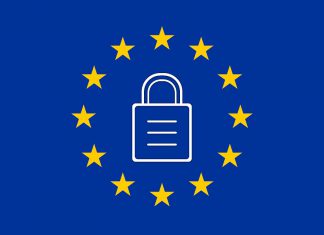Founded in 2018, Merkle Science is the next-generation predictive cryptocurrency risk and intelligence platform that helps crypto companies, financial institutions, and government entities detect, investigate, and prevent illegal activities involving cryptocurrencies.
Merkle was co-founded by Nirmal AK and Mrigs Pattnaik, who both have backgrounds in fraud science and cryptocurrency exchange operations respectively. Nirmal was a fraud scientist at PayPal, while Mrigs saw the need for data analytics that could identify patterns of illicit activity while working at crypto exchanges.
According to Pattnaik, a regulatory compliance specialist at Merkle, more than 97% of all stolen cryptocurrency has been taken from DeFi protocols. He added that Merkle’s technology screens and de-risks liquidity pools, monitors smart contract calls, and empowers businesses to unlock the value of DeFi while remaining compliant with AML and CTF regulations.
Merkle’s offerings fall under four categories, these include Compass, Tracker, Explorer and Institute.
Firstly, Compass is Merkle’s core platform. The platform includes a blockchain wallet and transaction monitoring system that helps firms track fund movements in real-time. This, Pattnaik claims, enables them to detect when clients send funds from sanctioned entities, darknet marketplaces or ransomware accounts.
Compass also leverages Merkle Science’s proprietary Behavioural Rule Engine to go beyond the blacklists, allowing compliance teams to create customized alerts to detect potential money laundering and suspicious transaction behaviour in order to meet their local KYC and AML compliance obligations.
Tracker is the company’s identity investigation forensics tool used by amongst others, financial intelligence units, cyber firms and law enforcement. The tool leverages data on the blockchain, enabling its users to trace how and where criminals are moving funds in real-time.
Thirdly, Explorer is an enterprise solution that helps firms understand counterparty risk by combining on-chain and off-chain data. The solution assists businesses with due diligence during onboarding processes, thereby helping financial institutions to work with crypto companies in a safe and compliant manner.
Soon, the company plans to launch Institute, a training program for individuals who want to learn about crypto compliance and/ or investigations.
Pain points
What pain points is Merkle looking to solve? According to Pattnaik, Merkle’s mission is to improve security and regulatory compliance across the industry.
Pattnaik said, “With the crypto regulatory scrutiny increasing around the world, and the increasingly complex illicit activities in the space, industry players — from crypto businesses to financial institutions to regulators — are struggling to keep up with the pace of change. Increased regulatory compliance is needed to guarantee competitive behaviour in all market categories and create a competitively neutral environment in response to new technologies, alliances, and market structures.”
In the opinion of the Merkle CEO, criminals are currently taking broader steps to obfuscate their sources of funding. This, combined with the continued growth of unregulated P2P exchanges, DeFi exchanges and other trading protocols has provided criminals with new ways to detach themselves from direct risks by disconnecting from known and flagged addresses.
He added, “Various financial protocols that are prone to technical exploitation, such as cross-chain bridges, have also been targeted by criminals. Merkle Science has developed tools that aid in making each of these types of applications more secure, as well as tools that help trace and identify illicit actors, making the Web3 space safer for all participants.”
Merkle’s USP
While other risk mitigation and compliance businesses create generic products that work in different kinds of financial environments, Pattnaik claims that Merkle’s technology is specialised for the Web3 space.
He commented, “Our Behavioural Rule Engine leverages ML models to allow crypto businesses, financial institutions, and LEAs to set up custom parameters based on local and international regulations. These parameters can then detect addresses that are otherwise not listed on any sanction list through behaviour analysis.
“The rule engine can be trained on customer data and the ML models for predicting new rules and is core to our business.”
As a full-stack crypto risk management solution, Merkle’s risk models are based on its proprietary technology. “The valueadd to the customer is that a broader set of risks is detected through us, promoting better safety. The rule engine and corresponding ML system for rule prediction have a network effect that builds over time as more customers use it and train it,” said Pattnaik.
Furthermore, this technology also grants investigators the ability to create a dashboard that serves the starting point for their work. Pattnaik remarked that addresses that appear during the course of the investigation are automatically clustered into groups using advanced clustering heuristics, allowing the investigators to decide which links and addresses they would like to chart.
Crypto challenges
With the cryptocurrency market continue to grow in stature and presence, there is also growing challenges surrounding security issues within the industry. With this considered, how can firms and individuals from illegal activities in crypto?
Pattnaik remarked, “Staying compliant with relevant regulations is essential. This means holding the correct licenses for your jurisdictions and monitoring user transactions for possible fraudulent activity.
“Adhering to sanctions that affect your business is also extremely important – for instance, ensuring that your users are not sending or receiving funds from high-risk jurisdictions. This is why monitoring and analytics tools like those that Merkle Science provides are so essential for keeping your business and your clients safe.
As more individuals discover and begin to adopt cryptocurrency, the risk challenges surrounding continue to become clearer. What are these?
How can such challenges be dealt with? Pattnaik remarked, “It’s possible that more robust proof of reserves policies could ward off similar disasters in the future. However, audits don’t tell the whole story. Proof of reserves can prove control over on-chain funds at a point in time, but cannot determine if private keys have been duplicated by an attacker.
“It cannot identify any hidden liabilities, nor prove that funds have not been borrowed to pass the audit. In a similar manner, keys may have been lost or funds could have been stolen since the last audit.”
Pattnaik said that what the industry should strive for proof of solvency, which is a standard that would require both proof of trust and proof of liability. This, he claims, would mean audits at frequent intervals, proving controls of funds and shedding light on liabilities.
Cryptocurrency security roadblocks
While there could be some ways more security around cryptocurrency is achieved, there still remains some roadblocks.
In the opinion of Pattnaik, there is a constant game of ‘catand-mouse’ between regulators and tech builders who are attempting to create safe solutions for users and the criminal attackers who are constantly seeking to exploit them.
He remarked, “As technology becomes more complex, so too do hackers’ means of exploitation. And as we’ve seen throughout the year, the bear market has not deterred hackers from successfully completing some of the largest exploits in history.
“Part of what makes these crimes so complex is the process of chain-hopping, in which attackers move funds across multiple blockchain ecosystems to obfuscate their path. But Merkle Science’s multi-chain analysis capability enables our clients to seamlessly track transactions across multiple blockchains.
“This is particularly useful for DeFi platforms that have incorporated cross-chain infrastructure to scale and increase their functionality. Similarly, our law enforcement and government clients use this cross-chain functionality to trace illicit funds seamlessly across multiple blockchains, creating powerful visualizations on a single screen in the process.”
Future plans
Earlier this year, Merkle completed a $24m raise to build Web3- ready risk mitigation, compliance and forensics solutions that will play a key role in the growth of the decentralised economy.
Tiwari said, “This financing is currently being used to accelerate our company’s global growth, invest in R&D, and be utilized to extend the capabilities of our unique predictive crypto risk and intelligence platform. We are also working on tools that will help platforms improve security and trust with arising proof of reserves and proof of solvency standards.”
The company has also recently launched several partnerships to boost security in the DeFi ecosystem.
Tiwari concluded, “Above all, our focus is always on helping our clients, including financial institutions, crypto businesses, and DeFi participants, to navigate today’s rapidly evolving regulatory landscape. Merkle Science’s predictive and machine learningdriven transaction monitoring, cross-chain analytics, DeFi liquidity pool analysis, and enhanced EDD reporting ensure that all of our clients can comply with confidence.”
Copyright © 2022 RegTech Analyst
Copyright © 2018 RegTech Analyst




